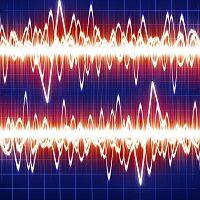Article
Ketogenic Diets Help Seizure Control
Author(s):
Changing kids' diets has been shown to help control epileptic seizures. But until recently there was little data on whether strict dietary regimens are beneficial for adults with epilepsy. Reporting at the American Epilepsy Society's annual meeting in Seattle, WA today, two research teams said they have had some success with diet modification as a way to reduce seizures in adults with drug-resistant epilepsy.

Changing kids’ diets has been shown to help control epileptic seizures.
But until recently there was little data on whether strict dietary regimens are beneficial for adults with epilepsy.
Reporting at the American Epilepsy Society’s annual meeting in Seattle, WA today, two research teams said they have had some success with diet modification as a way to reduce seizures in adults with drug-resistant epilepsy.
Researchers at Johns Hopkins University reported on a 4-year study at the institution’s Adult Epilepsy Diet Center. They looked at the effects of diet change on 138 adults following either a ketogenic diet or a Modified Atkins Diet (MAD), which is essentially a ketogenic diet with more carbohydrates.
Of the participants, 21 were already following a ketogenic diet when the study started in August 2010. There were 113 adults who had not yet tried diet therapy, of whom 100 had drug-resistant epilepsy. Of those 78 were started on the MAD, and 2 began an enteral version of the ketogenic diet in addition to eating a MAD.
There were 20 patients who decided not to participate in the diet therapy.
At the end of the study in August 2014, 43 of the 78 patients on the MAD had a greater than 50% seizure reduction included 28 who became seizure-free.
The average diet lasted 13 months.
The reported side effects included weight loss, hyperlipidemia, constipation, hair loss, amenorrhea and osteopenia.
Nevertheless, study author Mackenzie Cervenka MD concluded that diet therapy can be feasible, safe and effective for adults with drug-resistant epilepsy.
In a second diet study, researchers at the Rush University Medical Center in Chicago, IL compared results of a MAD of low glycemic index diet (LGID) on adults with medically intractable epilepsy. They followed 34 adults treated for 3 months at the Rush Epilepsy Center’s Dietary Treatments of Epilepsy Clinic. Of these 27 ate a MAD and 7 followed a LGID.
Though the side effects included weight loss, constipation, and hypercholesterolemia, the researchers reported that 27 (79) participants said their overall quality of life had improved. That included 14 patients how had a least a 5 0% reduction in the frequency of their seizures.
Rush’s Antoaneta Balabanov, MD said the diets can help control seizures or lower the amounts of anti-seizure drugs these patients need.




